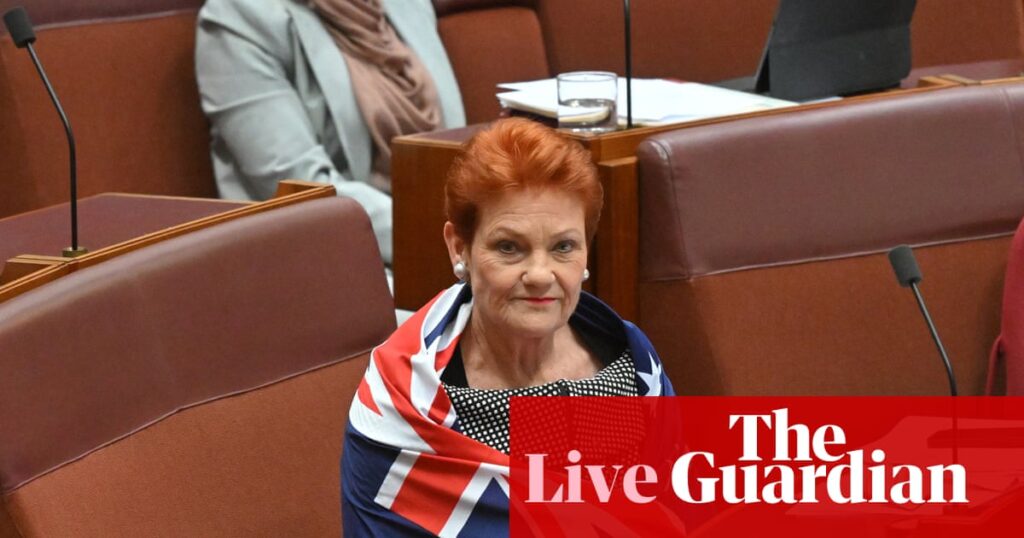
In a dramatic turn of events in Australian politics, two Nationals shadow ministers and a Liberal backbencher crossed the floor to support a motion for a parliamentary inquiry into immigration levels. The proposal, spearheaded by Pauline Hanson’s One Nation party, aimed to scrutinize the impact of high immigration on the Australian economy. Despite the internal dissent, the motion was defeated 37 votes to 9, highlighting the ongoing divisions within the Coalition.
The vote took place amidst a backdrop of heightened public debate over immigration, with recent rallies drawing right-wing activists and neo-Nazis into the spotlight. These events have intensified discussions around immigration policy, placing pressure on the government to address public concerns.
Political Repercussions and Public Sentiment
The decision by Bridget McKenzie, Ross Cadell, and Sarah Henderson to break ranks with their party underscores the growing tension within the Coalition regarding immigration policy. Liberal frontbencher Anne Ruston was seen attempting to sway McKenzie to align with the party’s stance, but to no avail. This internal conflict reflects broader societal debates about Australia’s immigration levels and their economic implications.
Sussan Ley, the opposition leader, reiterated the government’s stance that recent anti-immigration protests, despite being marred by extremist elements, included individuals with genuine concerns. She emphasized the need for a balanced approach to immigration, ensuring sufficient housing and infrastructure to accommodate new arrivals.
Broader Implications for Government Policy
Meanwhile, the government announced that the permanent immigration intake would remain at 185,000 for the current financial year. This decision has sparked further debate about the adequacy of infrastructure planning to support such levels of migration. Ley criticized the government’s lack of a comprehensive plan to integrate a million migrants into the country over two years, arguing that policy failures, rather than migrants themselves, are to blame for the challenges faced.
Labor MP Ed Husic took a more critical stance, attributing the recent rallies to far-right extremists and warning about the potential for such movements to influence public discourse negatively.
Aged Care Legislation and Political Maneuvering
In another significant development, the aged care legislation is set to return to the House of Representatives for a final vote. This follows a Senate deal between the government and the Coalition to release 20,000 home care packages, a move forced by bipartisan pressure. Aged Care Minister Sam Rae faced scrutiny over the delay in releasing these packages, with critics accusing the government of dragging its feet despite not needing parliamentary approval.
Rae defended the government’s approach, citing the need for a bipartisan agreement and evolving advice from the sector. However, opposition leader Sussan Ley framed the agreement as a defeat for Labor, pledging continued pressure to ensure timely delivery of care packages to elderly Australians.
International Relations and Humanitarian Efforts
On the international stage, Australia has pledged $1 million in aid to Afghanistan following a devastating earthquake, as part of a broader humanitarian effort led by the UN. Foreign Minister Penny Wong emphasized the importance of international cooperation in addressing the crisis.
In a separate diplomatic engagement, Wong assured Yulia Navalnaya, widow of Russian opposition leader Alexei Navalny, that Australia holds Vladimir Putin personally responsible for her husband’s death. This meeting underscores Australia’s commitment to human rights and democracy, as Navalnaya continues her advocacy against Russian authoritarianism.
Social Media Regulations and Youth Protection
Domestically, the eSafety commissioner has issued directives to major tech companies, including Google and Meta, to prepare for a ban on social media access for Australians under 16. This move is part of a broader effort to protect minors from online harm. The companies are expected to implement age-assurance technologies to comply with the new regulations, set to take effect on December 11.
The consultations preceding this decision revealed mixed reactions from parents and children, highlighting the complex balance between protecting young users and preserving their digital engagement.
As Australia navigates these multifaceted challenges, the political landscape remains dynamic, with immigration, aged care, and digital safety at the forefront of public and political discourse.







